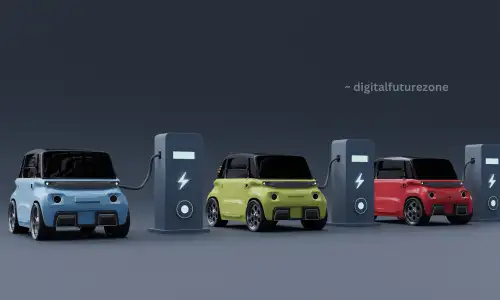
Recently, Europe witnessed the introduction of Fiat Topolino EV. At first glance, this tiny car seems ungainly with a top speed of 45kmph and range of 75 km; only seating two people. While these may appear adorable but impractical toys at first, this raises important questions regarding India and micro EVs as a sustainable and efficient future of transportation solutions.
Practical Car Needs
Most people need their ideal car to fulfill various functions and errands – such as transporting their belongings from A to Z; performing various jobs around town and taking on trips of any sort – without becoming outdated over time. For this reason, choosing one car that can accomplish all these goals may present some difficulty when making their selection decision.
Arrive safely at school without incurring the frustrations of heavy traffic; collect family from airport; travel on holiday trips together as a family (including luggage ).
As India transitioned away from diesel vehicles in the 2000s, hatchbacks or sedans fulfilled these requirements comfortably, affordably, and safely. Recently though, Indian market preferences shifted toward SUVs due to their more robust yet spacious nature; fuel preference also changed from diesel to petrol with an increasing interest for petrol-hybrid options.
India ranks third globally as a car market, behind only China and the USA. Although their annual car market size stands at over 4 Million vehicles annually, EVs make up only two per cent of this figure; although their annual growth rate of 110% can be impressive when measured against that of overall car markets which grow at +8% per annum; suggesting they may not gain momentum as quickly as predicted by experts.
Why Micro EVs Make Sense in India
- Urban Congestion:
- Indian cities are well known for their traffic congestion issues. Micro EVs’ small size and agility enable them to navigate tight spaces more effectively, decreasing commute times significantly while simultaneously alleviating urban congestion.
- Parking Solutions:
- Finding parking space can be an ongoing battle in urban settings; micro EVs make parking simpler and more accessible by taking up less space than their counterparts.
- Affordable:
- Micro EVs’ lower costs relative to larger electric or hybrid vehicles make them more accessible for a broader population, leading to greater adoption rates and adoption rates.
- Environmental Benefit:
- Micro EVs consume significantly less energy and produce far fewer emissions compared to larger vehicles, thus having a positive environmental impact in countries afflicted by severe air pollution issues. Adopting micro EVs could contribute significantly towards improving air quality through widespread adoption.
- Range Sufficency:
- Although micro EVs feature limited range, their limited capacity often provides enough range to cover urban commutes without needing long distance capabilities – making these vehicles an appealing and practical option for city residents.
- Small batteries used in micro EVs reduce production-related energy usage and raw material requirements, contributing to more eco-friendly manufacturing practices.
Challenges Facing Infrastructure in India
India needs an expanded charging infrastructure in place in order to support widespread adoption of electric vehicles (EVs and micro EVs), including micro EVs. A lack of charging stations presents significant difficulties to these developments.
- Consumer Mindset:
- There exists an established cultural preference for larger vehicles seen as more luxurious and versatile, so shifting consumer thinking toward micro EVs requires time, attention, and targeted marketing to make a change.
- Government Policies:
- Subsidies, incentives and supportive measures provided by governments will play an integral role in increasing micro EV adoption rates.
Conclusion
While micro EVs like the Fiat Topolino may initially seem impractical, they hold great promise in revolutionising urban mobility in India. With features that address traffic congestion, parking issues, affordability concerns and environmental sustainability as major components, micro EVs could play a vital role in building sustainable transport in India if provided with appropriate infrastructure, policy support and consumer education initiatives – creating cleaner and more effective urban transport networks across its roadways.
